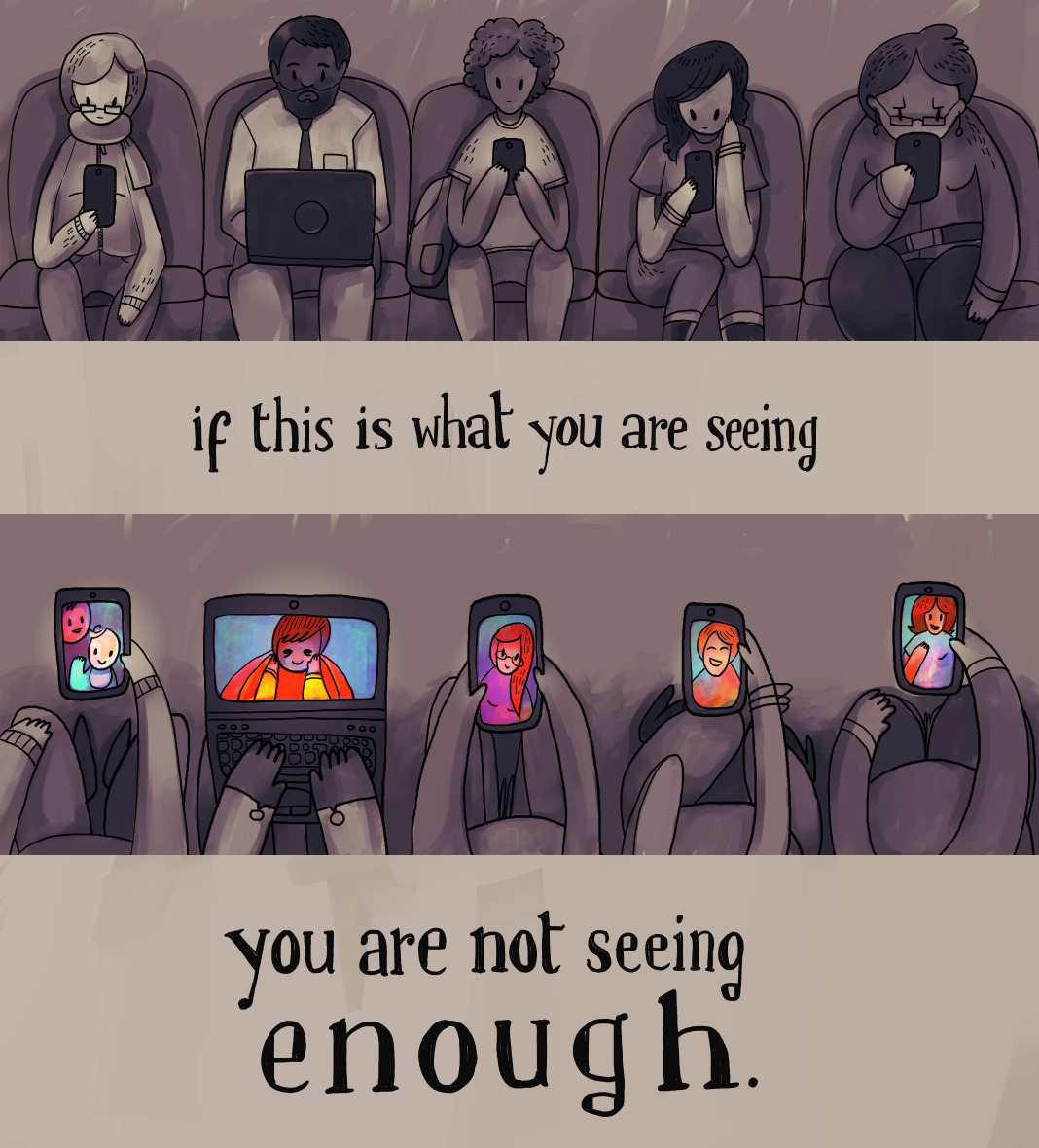In
October of 2010, Microsoft released a series of commercials promoting their new
Windows phone, which ran on Windows 7, an operating system that was new at the time. The premise of the commercial, which can be viewed below, was one that is
becoming increasingly common: we spend too much time on our smartphones, and it
is preventing us from experiencing all the wonderful things that exist in the
world around us.
The ad depicts people in a variety of
situations who are unable to peel their eyes away from their phones: from a
professional masseuse, to a doctor in the middle of performing surgery, and
even a man who is missing the sexily-clad female companion standing right in
front of his bed. In response to our collective technology addiction, they ask one word: "really?"
The message of this commercial is in many ways risky, and
arguably against Microsoft’s own best interests. They are, after all, aiming to
sell phones, which are the very product that they’re demonizing. Their
proclamation that the new Windows device is “a phone to save us from our phones”
is very bold, and difficult to deliver on. Gayle Troberman, who was chief
creative officer of Microsoft at the time, even seemed to contradict this sentiment
in an interview
about the ad, saying “It's up to consumers to decide when to use their phones
more and when to use them less. . . we're no one to tell people how to use
their phones.”
To be fair to Microsoft, they are hardly the only ones delivering this anti-screen rhetoric. There are many comics across the internet with the same basic message, examples of which can be seen below.
|
|
Within the groundswell, however, is a subset
of people reacting to this aggressive messaging with resistance. Groups like r/PhonesAreBad on Reddit, and
my personal favorite, “what
if phones, but too much?” on Facebook, use satirical group names and
sarcastic humor to poke fun at this surface-level social commentary about
phones. In their view, technology doesn’t always have to be evil, and can even be used to bring about positive means of communication that would not be
possible without it. The image that you can see below, drawn by comic artist Rosangela
Ludovico, frames this perspective perfectly:
After all is said and done, Microsoft’s Windows phones failed as a product, and are no longer being produced. Windows corporate vice
president Joe Belfiore stated
in October of 2017 that the “volume of users is too low for most companies to
invest” in developing apps for the Windows OS. Though it is doubtful that their
self-defeating advertisements had any significant role in this closure, people
are starting to see through transparently technophobic advertising. Audiences,
particularly young ones, crave a more nuanced, fresher perspective. Meanwhile, ham-fisted, overly simplistic messages about phone usage start to seem more and
more archaic.
What do you all think
about the Windows ad? Are you tired of technology being portrayed in a negative
fashion? Or does Microsoft have a point about our overuse of phones?




Great blog post! I think that people tend to forget that cell phones and social media actually haven't been around for that long and people are just beginning to realize the harm it can cause. The point of these technologies is to connect people together, but users have become addicted and abuse the powers that is being offered to them. It isn't entirely the user's fault. Companies have learned to design their products and apps to take advantage of the attention-based economy and figure out ways to take more of the user's time (and money). I recently read Digital Minimalism by Cal Newport and Irresistible by Adam Alter which talk address the psychology behind cellphone addiction. I highly recommend!
ReplyDeleteHi, Allison! This is a very interesting case study on risky marketing campaigns. Speaking out against the “evils” of smartphones while also selling a smartphone in the same ad is tricky to say the least. What got me was that the ad didn’t really make sense to me. How could a phone get you “in and out” while it still had all the functions of other smartphones? Would people really want that kind of a phone even if it did that? As you mentioned, this proved to be a failure. Maybe instead of demonizing smartphones, Microsoft could have advertised that the Windows phone was easy to use. That way, they could’ve maintained their “in and out” slogan by showing people quickly navigating through the phone. Either way, it’s interesting to see a company try to sell a phone by criticizing phones. Great post!
ReplyDeleteInteresting discussion here, Allison. I wonder like you did whether the ad really had much to do with the downfall of Microsoft phones. There was a sort of reverse-psychology type thing they were trying to play at with this ad and, in many ways, it was memorable, so that was something. However, it certainly wasn't logic and therefore came across as disingenuous or inauthentic. That may ultimately be why people didn't connect with this advertisement or, ultimately, Microsoft's phones.
ReplyDelete